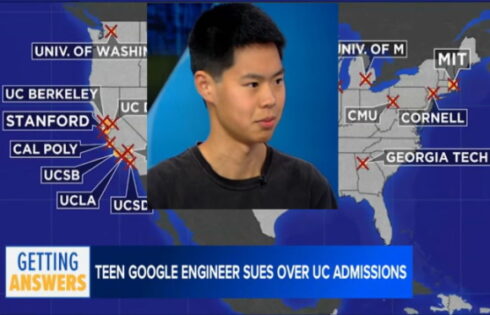The people who run Title IX adjudications at colleges across the country, deciding the fates of students who have been accused of misconduct, are being taught explicitly to see contradictory statements by accusers as evidence they are telling the truth.
The basis for this non-intuitive view is pure junk science, as journalist Emily Yoffe learned when she interviewed memory and neuroscience scholars for the second of her three-part Atlantic series on campus rape policies driven by Obama administration mandates.
For years the federal government has forced colleges to do “trauma-informed” investigations, based on the view that sexual assault creates severe “neurobiological change” in victims, including “tonic immobility,” Yoffe says.
This change means their memories are allegedly “stored in infallible yet ‘fragmented’ condition” that can be coaxed out by the proper interviewing techniques, much like a previous generation of therapists coaxed made-up “repressed memories” of childhood sexual abuse out of their patients.
One of the “self-styled experts in the neurobiology of trauma” is Michigan State University’s Rebecca Campbell, who is not a neuroscientist and admits it’s an “overreach” to use her research as gospel in Title IX investigations, yet whose presentations have shown up in Title IX training, Yoffe writes:
As a result, those adjudicating sexual-assault allegations are told, the absence of verbal or physical resistance, the inability to recall crucial parts of an alleged assault, a changing story—none of these factors should raise questions or doubt about a claim. Indeed, all of these behaviors can be considered evidence that an assault occurred.
Harvard psychologist Richard McNally helped debunk the repressed-memory witch hunt as a researcher on trauma’s impact on memory:
“The notion that the mind protects itself by repressing or dissociating memories of trauma,” he writes in Remembering Trauma, “is a piece of psychiatric folklore devoid of convincing empirical support.”
He has written that “Extreme stress enhances memory for the central aspects of an overwhelming emotional experience,” so rape victims’ memories should actually be substantially coherent to start.
But because memories are always being “re-constructed,” McNally told Yoffe, it’s wrong to see an alleged victim’s final narrative (aided by coaxing and coaching) as the most accurate version of what happened.
UC-Irvine psychology professor Elizabeth Loftus, who “has done pathbreaking work on memory manipulation,” told Yoffe Title IX training has revived the repressed-memory craze:
Loftus also talked about the effects of drinking on memory. She said that with alcohol-induced memory fragmentation, attempts to reconstruct events are “very vulnerable to post-event suggestion.” This can include someone, especially an authority figure, labeling a consensual act as rape. She said it’s then easy for exaggerated, or even entirely false, memories to be created, ones that feel completely real. “This is extremely worrisome,” she told me. “The universities are under enormous pressure to do something about sexual assault, and they sometimes fill these offices with people whose bias and agendas lead them to create victimhood.”
Like The College Fix on Facebook / Follow us on Twitter




Add to the Discussion